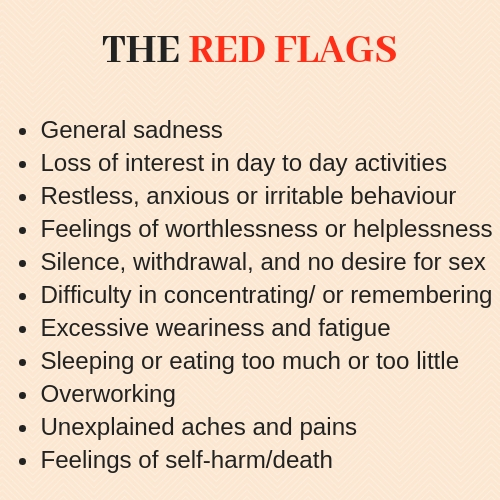Lost in the sea
Blinded by mist
Nowhere to go
And always alone
I lost all hope
But nobody knows
This secret inside
Will make me subside
There’s a hole in my soul
That grows more and more
As time passes by
Jessica Cox
I remember reading this poem in Quora a couple of months ago.
Depression is an uninvited guest, which can turn into a horrendous nightmare within a split second.
When a spouse is depressed, he/she can create imaginary stories in their heads They might think of you as selfish, or you have abandoned them. They can develop an inferiority complex. They fear you’ve lost interest in them. It can also leave partners feeling confused, vulnerable and ultimately leading to emotional waterboarding.
Especially when the relationship is stretched, there is a high chance of one person feeling isolated and detested.
Living with a depressed partner can be a living hell which can ultimately lead to an annihilation of the trust and love shared in a relationship.
For Asians in particular, mental health is a topic not openly discussed, with many not even understanding what depression means.
According to Mayo Clinic Depression is a mood disorder that causes a persistent feeling of sadness and loss of interest.
Depression results from alterations in brain chemistry that influences temperament thought process, sleep, appetite and sexual desire.
In reality, Depression can be much less noticeable. But that does not make it insignificant. Clinical depression, can affect how you feel, think and behave and can lead to an assortment of emotional and physical problems.

Feel Listen Empathise
Depression is not a flaw in one’s character but a shift in the chemistry of the brain. This means that it can happen to anyone.
It is essential to understand the situation of your partner.
“Depression makes you isolated. It’s very hard to think of other people when you’re wrapped in a prickly blanket of sadness, and all you can think about is your own pain.”
It is likely that you may feel frustrated and upset when you are trying your best to keep your partner happy and the relationship strong.
Depressed spouses may become aggressive, arrogant and dominantly militant. They can pick arguments for anything and everything. Your social life, passion, and career may bring them frustration, and they may often feel they are unloved or betrayed.
A depressed person may sleep too much, or suffer from insomnia. They can often eat too much or skip meals.
They will care less about their body and may have difficulty in concentrating and they might stammer in conversations.
Understanding the situation properly is the first step towards bringing them out of depression.
Be Reassuring and Patient
Being patient is hard when you feel you are doing everything right and your spouse cannot realise it. Reinforce your partner with love, positivism and understanding.
Stop criticising and stop showing resentment over their behaviour.
Listening to your partner with an open and receptive heart is very crucial. But be careful not to force them to talk.
Take over the responsibilities of your spouse for a while and give them space to do whatever they like to do.
Assure them of your love and care regularly. Do things together which you used to do in the honeymoon phase of your relationship.
Let your spouse know that you will be there for him or her.
Break the Cycle
This cycle is a never-ending vicious cycle. You must be brave enough to break the cycle.
If your partner gets angry or defensive and you feel confused or upset, do not speak a word.
When your partner becomes insecure and starts to scream at you, it is probable you might feel angry and scream back. And later you will feel guilty and offended.
You can do two things. Either you can go to him or her and give a comforting hug forgetting everything or take some time on your own to calm yourself down.
Whenever your spouse starts an argument, deviate them.
Do Not Hesitate To Seek Help
The most important thing you can do for your depressed partner is to help them get a proper diagnosis followed by appropriate treatment.
The problem is depression, not your spouse. So you have to fight together to eliminate the disease, not compete against each other.
“I am inadequate and stupid, without worth. I might as well be dead.”
Depression, just like common cold and diabetes, can be treated when sought medical and therapeutic help early.
In the field of mental health, cognitive therapy and psychodynamic therapy have proven to be very effective in treating depression. A trained therapist can identify and help a depressed spouse to a great extent.
Speak with your doctor and arrange a treatment plan designed exclusively tailored for the patient. In severe depression, medication will be necessary.
Treatment can be a combination of psychotherapy, medication and other alternative treatments such as acupuncture.
Mental health experts suggest that it is necessary to keep an eye on depression and its roots in a relationship and to seek professional help as early as possible.



